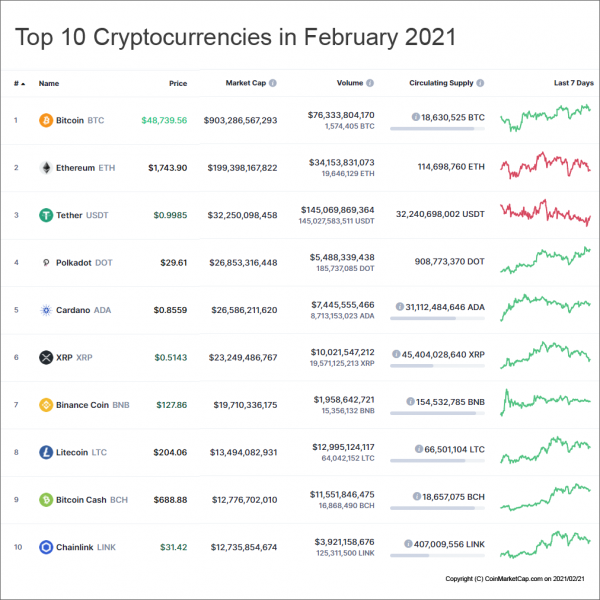A cryptocurrency is digital, virtual money. Ownership and transactions are stored decentrally in encrypted blockchains that are supposedly managed securely. No banks are actually needed to control the flow of money. This has advantages like anonymity but also disadvantages like high votality.
The first cryptocurrency was Bitcoin, which still holds on to the number 1 position. In addition, there are other cryptocurrencies; currently there are over 4000, but only a few achieve a respectable trading turnover per day. Other important ones, besides Bitcoin and others, are Ether, Ripple and Litecoin.
Cryptocurrencies like Bitcoin can either be bought on marketplaces like Bitstamp.net, Kraken.com or Coinbase.com, among others - or they can be created electronically by "mining" them. This means that you procure a so-called "miner", i.e. a computer configured especially for mining, which achieves new coins with a strong (fan) noise. In this area, a specialized mining farm market has developed, which is responsible for the high and rightly denounced electricity consumption worldwide - however, this energy consumption is also necessary for the calculation and confirmation of transactions within the blockchain. Due to the architecture of cryptocurrencies like Bitcoin, it is increasingly difficult to create new coins or percentage values of them.
The current top 10 cryptocurrencies are shown in the depicted screenshot from CoinMarketCap.com (as of Feb. 16, 2021). The fact that bitcoin has currently rebounded so strongly is also due to the communication behavior of the famous Elon Musk, who publicly said in early February that he would invest USD 1.5 billion in bitcoins, as he expected bitcoin payments to become popular in the future. Since then, the bitcoin value has continued to increase over 33%.
Ultimately, the future will show whether and to what extent decentralized cryptocurrencies such as Bitcoin will continue to prevail, and/or whether individual states such as China will manage to digitally switch their own digital national currencies, and/or whether large companies such as Facebook will prevail with digital currencies - and to what extent our classic currencies such as the US dollar or the EUR, which we can also still hold in our hands, will continue to exist and have value in the future.
Note: This article is not a recommendation to buy specific cryptocurrencies, nor is it intended to advertise the corresponding marketplaces mentioned. The information in this article is purely for informational purposes.
Link: All current cryptocurrencies and their market capitalizations on CoinMarketCap.com
Link: An extract on cryptocurrency exchanges on Investopedia.com
Link: Calculating the electricity needs to create coins on CryptoCompare.com
Copyright: All mentioned brands, brand names, website addresses and trademarks or logos, are the property of their respective owners.

